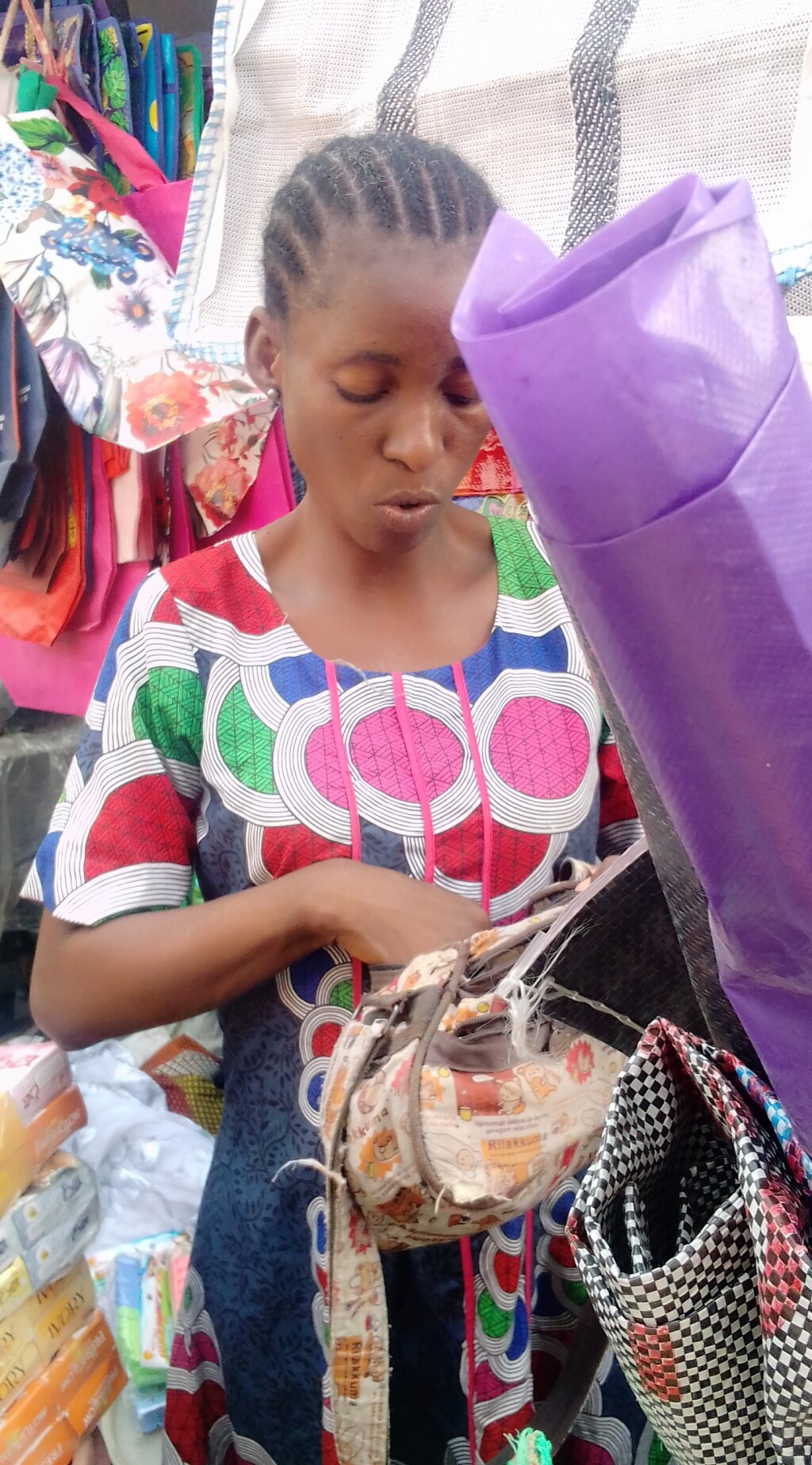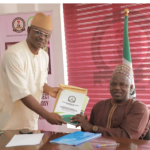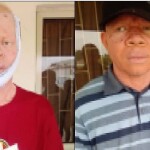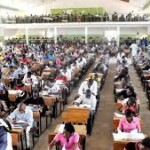Development finance initiatives targeting women in SMEs are weeding out women with disabilities in Nigeria. Nothing could be more deliberate.
By Gbenga Ogundare
Bukola Adeniji speaks like she is in a studio whenever she advertises her brand of confectioneries to potential clients. Anyone who is tone-sensitive is quickly enchanted by her fruity voice.
But not the Lagos State Employment Trust Fund (LSETF) credit officers Bukola engaged early this year. She audited their coldness in the back-and-forth that morning.
It wasn’t that she couldn’t hold her own in money talk. She’s been in catering and event management services since 2013 — when her vision of becoming a broadcaster dimmed, literally. She learnt catering, and specialised on confectionery, and has become independent as a vision-impaired entrepreneur since then. She told ER she keeps her books as balanced as she can. “I needed like N100,000 to boost my business in January so I went to the LSETF,” she told ER in November.
The state’s Fund, a creation of the Employment Trust Fund Law enacted in 2016, says it has the mandate to provide financial support to Lagosians, and tackle unemployment through job and wealth creation. It started with N25-billion capitalization — wholly taxpayers’ money. The state injected more funding by 2020, every four years since then, as the law provides. That is beside the permission it grants the Fund to seek and receive donor funding, grants, and others.
Of interest to Bukola is the micro loans it offers, among other financial products. The conditions, on the face of it, do not intimidate: state and federal identifications, 5 percent of amount of loan as equity. It’s even easier for start-ups. One of the products, LSETF-Access Bank Women Entrepreneurs Loan (W-Initiative), targets women — with up to N250,000 in loan, a three-month moratorium, and 10 percent interest rate over a year. And the requirements are typical — until they are not so for less financial literate entrepreneurs and those whose poverty level cannot, without help, allow them to participate in wealth generation.
Bukola belongs in that category. Likewise Esther Salami, Arinola Ogunsanya, Yemisi Isado, Fausat Sobola, and other women with disabilities in small-scale businesses.
Like Bukola, Esther Salami needed N50,000 to shore up her investment in her confectionery business, too, sometime this year. She approached the LSETF. And the staffers there blocked her out at about the same place they did Bukola: the reception.
It astounded Bukola. “They just told me right there I was not qualified because I didn’t have a tax clearance they asked for,” she told ER.
It’s a pattern of barrier development finance agencies weave to lock out people with disabilities (PWDs) and poor entrepreneur wannabes. Otherwise, a fresh-out-of-training small-scale business woman like Salami will take years to meet that condition, if she ever starts. She even had the fortune to have been trained at the GIZ Entrepreneurial Scheme in Lagos, and another skill acquisition centres. The training scheme here ought to cover business techniques, including borrowing process. But Bukola learnt whatever she knows now with her own sweat and tears. And, all things being equal, she practises it.
“I was paying my tax,” she said. “It’s only this year I could not pay.”
The state doesn’t care.
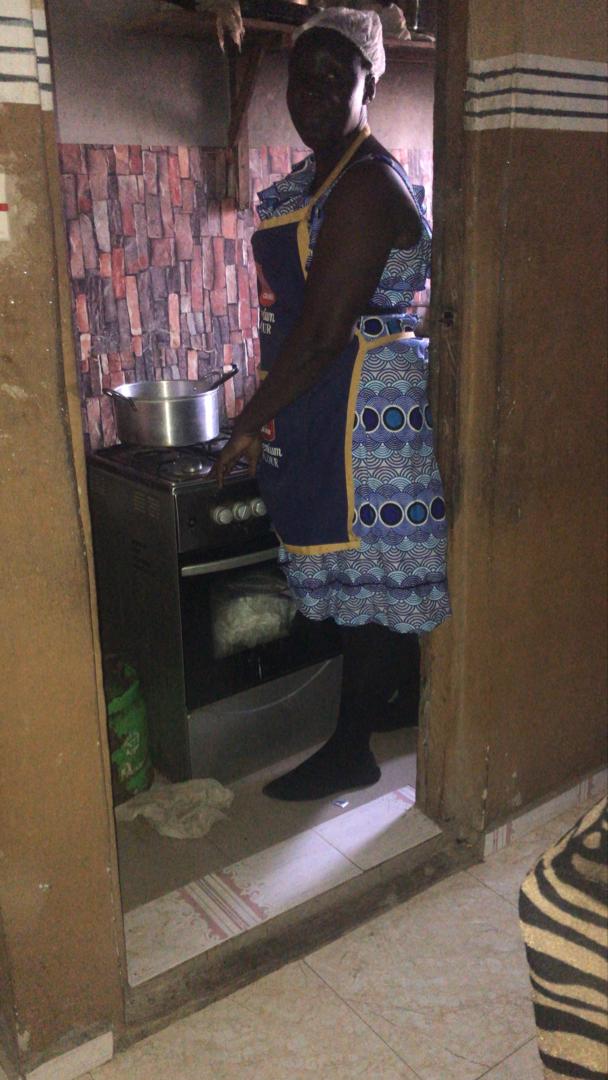
Commercial lenders, especially microfinance banks, are not different. It doesn’t matter a number of them claim they are inclusive: Accion MFB, Letshego, a multinational MFB, and others.
Arinola once approached Accion to borrow N300,000. Her business needed physical expansion then, among others. “The bank is disability friendly,” she told ER, “and they have a low interest rate for PWDs.” Her assessment is subjective, though. Only one bank, UBA, has a braille teller in Nigeria, if that counts for accessibility to a literate customer with vision-impairment. And the format still requires some sighted person to help fill the form. The MFB borrowers who are vision-impaired cannot undertake the application process on their own. Accion had to send two loan officers to assist Arinola, visiting her, and putting her through the knotty part of the application. “They came back and inspected my equipment and shop, and told me I was qualified,” she said. Then came the last straw: guarantors. The MFB asked for two people, each earning a salary that could offset the loan in two months if she failed to pay back. None of her friends or relatives in their active career earned that much. “I had only one guarantor—my brother, before he retired,” she added. And if there were others around her who earned that much, they were not ready to stick out their neck for a blind baker.
Yemisi got her own brother. He initially came along as a sign language interpreter with her to Letshego office (the bank has no disability desk) for a lifeline her catfish farm at Okota, Lagos, needed. Covid-19 badly impacted the one-million-naira farm in 2020. But her financial records and experience as an entrepreneur still boosted her credit-worthiness. Her diploma in catering and hospitality management equally helped her financial literacy level. But the bank, again, demanded a guarantor—essentially as a stand-in. It needed the latter because in spite of her business savvy, her hearing impairment became the core issue for Letshego loan officers.
The bank claims it’s inclusive. It won a cash prize of $250,000 in May from the Africa Development Bank (AfDB)—for disbursing 63 percent of 5115 loans to women-led businesses in Nigeria through a development finance programme. An initiative of the AfDB’s Guarantee for Growth, the Affirmative Finance Action for Women in Africa (AFAWA) seeks to cover the $42bn-gap in women-led business finance on the continent.
Letshego is the only participating MFB from Nigeria. It claimed it dedicated $2m of its $5m credit line to women portfolio in Nigeria in over a year. That gesture wasn’t for its feminist bent or development passion. The Africa Guarantee Fund, another organ of the AfDB, backed the lending — or de-risked it for Letshego. The MFB’s original guarantee line was $3.5m.
Since the G7 and other development partners, including Canada, Denmark, Spain, France, Italy and two others are in support, the initiative aims largely at development, especially to enable and mainstream SMEs into the macro-economy; it doesn’t target individual bank’s growth.
So in 2021, the AGF partners, with $500m, started guaranteeing the participating MFBs’ risks (up to 75 percent at times) of lending to women-led SMEs. The goal is to unlock up to $2 bn in financing for this women-led initiatives.
But Letshego makes the condition tougher for women like Yemisi. “They decided to give my brother the loan,” she told ER. Still, the MFB logged the man — a stand-in for a woman with disability it didn’t trust — with the businesswomen it claimed it lent more than 60 percent of the portfolio credit in 2022. Letshego didn’t respond to a list of question ER sent to its project manager Feyisayo Alayande as of the time of publishing the report. Yemisi wasn’t sure if women from other disability clusters succeeded in their applications to Letshego. But she told ER of the numerous hearing-impaired women in the Deaf Women Association of Nigeria (DWAN) Letshego locked out of access to its loans. The MFB disqualified them, according to Yemisi, because they could not bring rich guarantors, and provide the collateral.
Not enough for inclusion
The handful of women with disabilities — fewer than 10 —who applied to Letshego for the AFAWA loan in Lagos were even lucky in a sense: they heard about it. Thousands of other women across the country, especially in the rural areas where women dominate the agriculture value chain, were out of the loop.
Apart from its 10 branches in Lagos, the MFB has only one other branch in the southwest: Ibadan. ER monitored a group of women with disabilities from Iseyin who visited the Ibadan branch to make enquiries about the AFAWA initiative. Seun, a credit officer they met there, said the branch only serves its immediate environment, and so far lent to just a man and a woman with disabilities; it lacks the resources to operate in the agrarian community the women came from. Seun promised to get back to ER when asked if Letshego has expanded and lent to more women entrepreneurs with disabilities. The third branch in Abuja is the only one across the north central, and one more in Borno serves the northeast. The bank, though, claims it has 23 branches across Nigeria.
Same structural barriers
The second leg of Yemisi’s journey began when she yielded to the bank’s sustained invitation to come for a second loan. Her performance impressed Letshego: she paid back the principal with the interest rate, which added up to N700,000—all paid back in six months. “It was like I just worked for them. I couldn’t say I made any profit,” she said about both tranches. The loan department kept peppering her brother’s phone with reminders no sooner than it released the loan; and each time she remembered it her heart skipped a beat. “My brother would tell me to take it easy—that Nigeria owes, too,” she said. “I borrowed from him to pay back the second loan.” Afawa had yet to respond to ER request for clarification on this and other issues as of the time of publishing this report.
Aarinola didn’t go far after Accion, the MFB she described as very PWD-focused, froze her out. A grant later came her way. Bukola, too, fell back to her bank, Polaris. The amount she needed here reduced to N50,000. But the bank wouldn’t even listen to her, she narrated. They printed out her one-year account history and said the data didn’t convince them she earned enough to pay back the loan. “This is the account I give when people place orders. The most recent then was N100,000 ,” she said. After getting over the initial shock, she concluded the loan officers focused on something else: her impairment.
In the CBN Microfinance Policy Framework, the framers state as objective No. 1: Provision of timely, diversified, affordable, and dependable financial services to the economically active poor.
The population segment the policy refers to as beneficiaries include women with disabilities. But the promise of affordable and inclusive financial services remains elusive as Accion, Letshego, LSETF, and others ask these borrowers to meet conditions similar to those that exclude them from mainstream commercial banking. Among these are high-end guarantors, collateral like houses, land, cars, little or no moratorium, and high interest rates.
Raising the bar at this level even complicates the problem. Among the 18 women with disabilities ER interviewed for this report, only 30 percent of the blind women are graduates. The highest qualification, among the deaf women, is ND — and it is just 10 percent. The Microfinance Model deliberately targets these economically active poor women, in spite of their low literacy level, which obviously determines their financial literacy.

Fausat happens to be the most popular deaf traders in Oshodi. She took over the plastic bag trade from her late mother who she followed to that same spot for about three decades. Whatever formal education she had was about sign language communication. Her teacher then, also deaf, later became her husband. She obviously never learnt entrepreneurship or how to obtain loans in sign language communication. But she told ER how a loan shark pulled her into its dragnet when she was about 32, and she borrowed N110,000 , guaranteed by some bully with enough street-cred in the market. The lender had to get back the loan in two months, in daily instalments, with N6,000 interest. She told ER, through an interpreter, she had no idea of microfinance banking. Even if she did, the knowledge would not have made any difference for an uneducated borrower with disability in most of the MFBs around. Like Yemisi, Fausat too has since been scared of borrowing.
Most of those women interviewed are like Fausat, in terms of financial literacy and entrepreneurial know-how. Those that had the training among them said there was no disability module or adaptation to it. Germans at the GIZ, Lagos, taught Salami. And she also learnt on the online platform of the Lagos State University. This learning is basically about entrepreneurship. Not much about the nuances and technical know-how with respect to disabilities. On occasion the MFBs themselves approached the disabled people clusters, the effort appeared more like a fishing expedition. The loan conditions awaiting them, especially the provision of guarantors, limited the women’s chances.
Letshego has snatched the credit now, from Accion, LSETF, and others. And AFAWA has rewarded it. But nobody cares to hear the stories of women with disabilities the MFB schemed out with impossible conditions. Or how disability-inclusive the initiative has proved so far.
Since the Discrimination Act came into force in 2019, the AFAWA initiative seems the first women-focused development finance scheme that attracted poor women with disabilities in small business. Unfortunately, the AfDB’s inclusion theme in it comes too broad; it fails to address the peculiarities of women with disabilities who actually need inclusion in the AFAWA initiative.
It takes deliberate effort for development programmes like this to clearly indicate in their theme the levels of inclusion they project. As long as that remains an afterthought, Nigerian women with disabilities will continue to find themselves on the fringe of such opportunities. Or get tagged behind.
In such circumstance, the farthest women like Yemisi can go depends on how willing they are to endure discrimination and stigmatisation.

